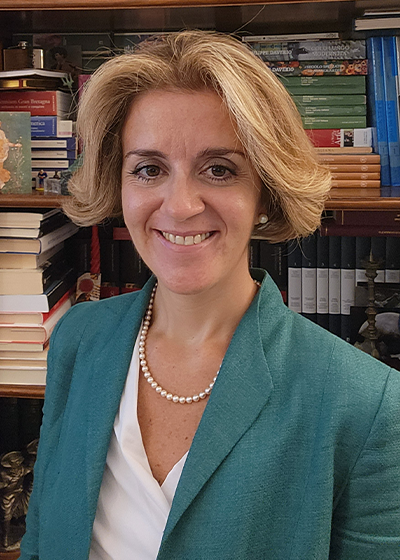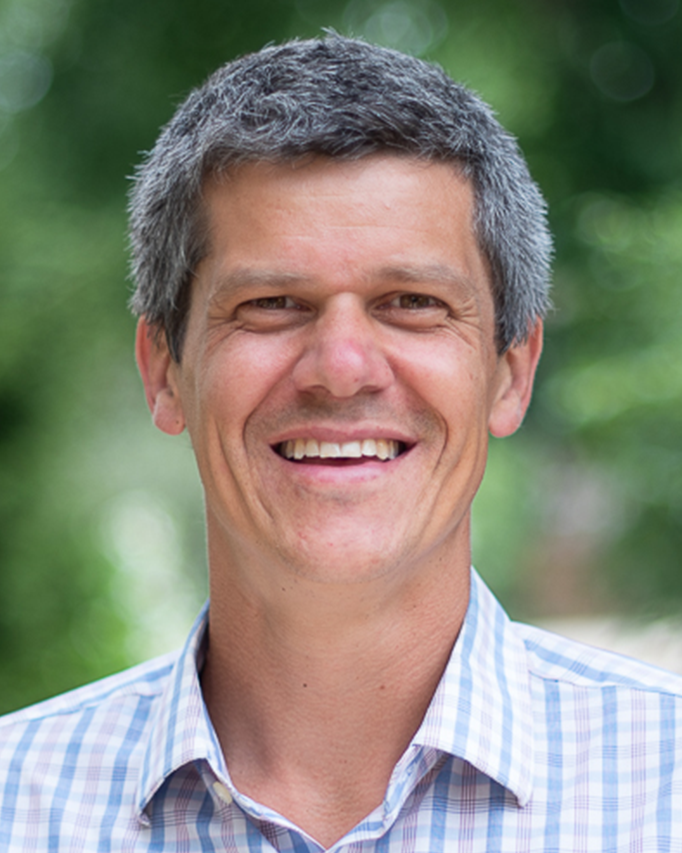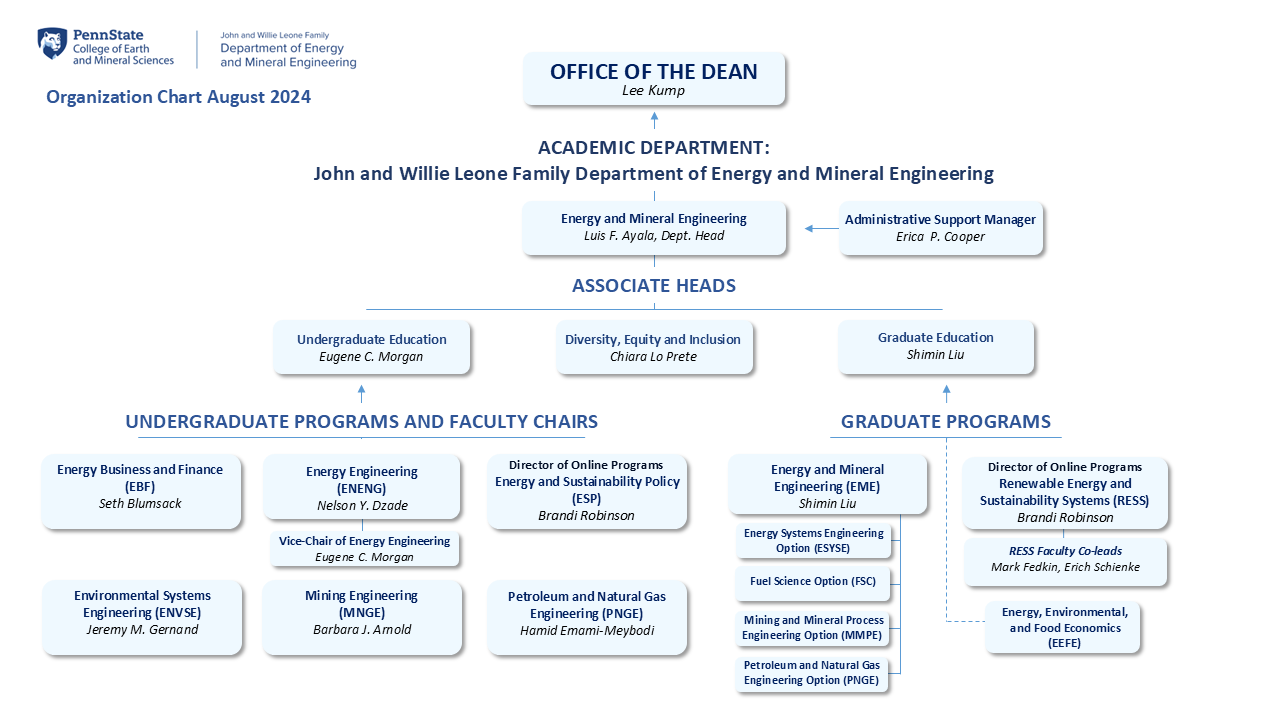A message from Luis F. Ayala
Welcome to the John and Willie Leone Family Department of Energy and Mineral Engineering (EME) at Penn State! Our department offers a vibrant environment for exploring and pursuing exciting careers and research opportunities that address the critical challenges involved in the transforming global energy landscape. Any single discipline cannot effectively tackle the complex energy challenges of the future and today: EME offers an interdisciplinary ecosystem that meets the moment and the needs of our students, faculty, and staff. I invite you to explore all what we offer: you will learn the many reasons why we are waiting for and welcome you here at EME@PSU.
If you want to integrate energy economics and decision-making to understand energy commodity markets and shape the future of energy production, our Energy Business and Finance (EBF) residential program is waiting for you.
If you want to discover renewable and sustainable energy systems, master the fundamental engineering principles behind energy industries, and solve problems in energy generation, storage, and utilization, our Energy Engineering (ENENG) residential program is waiting for you.
If you want to prepare for success in careers at the intersection of energy science and policy while cultivating a strong sustainability ethic and global perspective with all of the flexibility a fully online degree program affords you, our Energy and Sustainability Policy (ESP) program is waiting for you.
If you want to learn and apply engineering principles to protect the environment and earth, viewed as a system, and design processes that minimize and mitigate environmental footprint and damage, our Environmental Systems Engineering (ENVSE) residential program is waiting for you.
If you want to learn how to safely and sustainably ensure a reliable supply of essential materials needed for daily life and be part of creating the mineral supply needed to address the increasing need for electrification in our economy, our Mining Engineering (MNGE) residential program is waiting for you.
If you want to discover subsurface energy production and storage, understand the core engineering principles behind the safe and reliable production of today’s primary energy sources (oil and natural gas) as well as geothermal energy, and design innovative hydrogen and CO2 geo-storage solutions that assist the transformation of the current global energy landscape, our Petroleum and Natural Gas Engineering (PNGE) residential program is waiting for you.
If you seek to push the boundaries of science and engineering in any of these critical subjects, and engage in exciting multidisciplinary research supported by world-class interdisciplinary institutes, our Energy and Mineral Engineering (M.S. and Ph.D.) graduate residential program is waiting for you. If you need the flexibility to earn a graduate degree part-time from a distance, our fully online Master in Renewable Energy and Sustainability Systems (RESS) program explores renewable energy technology, policy, and markets while emphasizing project management and systems thinking.
With a history of successful alumni, award-winning faculty, and talented students, our EME department is at the forefront of education and research innovation in today’s most pressing and relevant energy and mineral systems challenges. I am deeply honored to work alongside our students, faculty, staff, and proud alumni to continue shaping and influencing the future of our field and its future leaders. We invite you to join us!
Luis F. Ayala
Head, John and Willie Leone Department of Energy and Mineral Engineering
Associate Heads

| Associate Head, |

| Associate Head, |
 | Associate Head, |
 | Administrative Support Manager |
About Luis F. Ayala
Luis F. Ayala is the William A. Fustos Family Professor in Energy and Mineral Engineering in the John and Willie Leone Family Department of Energy and Mineral Engineering at Penn State. His research activities focus on the areas of advanced computational fluid dynamics modeling applied to multiphase flow of natural gas in porous media, multiphase well performance, natural gas engineering, and multicomponent thermodynamics. Ayala holds two engineering degrees (both with summa cum laude honors), one in chemical engineering and another in petroleum engineering from Universidad de Oriente (Venezuela), and M.S. and Ph.D degrees in petroleum and natural gas engineering from Penn State. He is a Fulbright Scholar and recipient of the Fulbright-Colciencias Innovation and Technology Award, and has received awards for Outstanding Teaching, Outstanding Faculty Advisor, and Outstanding Faculty Mentoring.
In 2021, he became the inaugural recipient of the Charles Hosler Diversity, Equity, and Inclusion Faculty Award in the College of Earth and Mineral Sciences and received the Penn State Howard B. Palmer Faculty Mentor Award in 2022. Ayala served as associate department head for Graduate Education in the Department of Energy and Mineral Engineering from 2013 to 2019, and served as executive editor for the premier scholarly journal in his professional society (SPE Journal, of the Society of Petroleum Engineers) until 2022. He has received several Outstanding Technical Editor Awards and the Eastern Regional Reservoir Description and Dynamics Award. In 2022-2023, he was selected as an Administrative Fellow in the Office of the Senior Vice-President for Research at Penn State. He was elected a Distinguished Member by his professional society in 2022.



